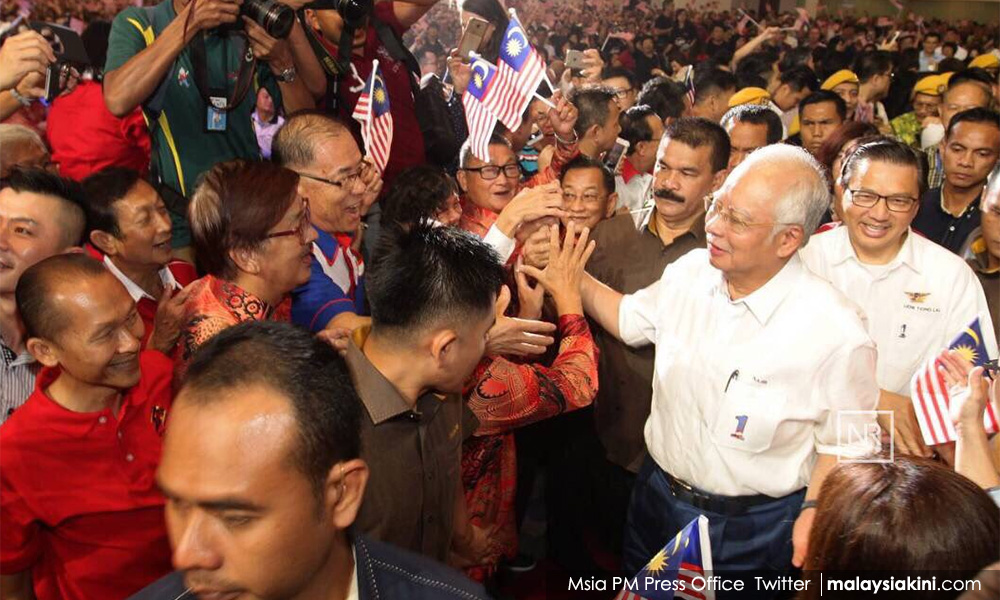
The social media is still reeling from Prime Minister Najib Abdul Razak's "shocking" statement in recent days that the Chinese would be the target of any chaos in Malaysia.
If we give him the benefit of the doubt, it can be argued that the Chinese may become the proverbial "scapegoats" in any power vacuum that emerges post the 14th general election (GE14) in the quest for a new order.
That doesn't mean the Chinese should return to the ruling BN, as the prime minister no doubt implied.
It's not a certainty the Chinese would be targeted as the politics in Malaysia is split down the middle, with equal numbers of Malays on both sides of the divide.
It was not so on May 13, 1969, in the wake of the May 10, 1969, general election in Peninsular Malaysia that saw Penang fall to the opposition. Selangor and Perak were split almost equally between the ruling Alliance Party and the opposition. The Malays and non-Malays were arranged against each other.
For a week from May 13, hundreds of Chinese met a grisly end during the searing race riots which erupted. Only a change of government in Putrajaya will lay the ghosts of May 13 to rest.
The Chinese have been through it before.
They were literally butchered by the thousands during the Japanese Occupation of Malaya (1941 to 1945).
Before the British returned in sufficient numbers, the Communist Party of Malaya (CPM) set upon those who had allegedly collaborated with the Japanese during the occupation. Many of those who paid with their lives were Malays.
The BN has been in power an unprecedented 60 years, too long by any standards of governance in the Free World.
It was Dr Stephen Hawking who observed that the "only predictable property of the universe is chaos".
The longer a government stays in power, and enforces an artificial kind of stability, the greater and more prolonged the instability when that artificial stability comes to an end, as it will someday.
We have had examples not so long ago, like the Philippines after Ferdinand Marcos, Indonesia after Sukarno and Suharto, Yugoslavia after Josip Tito, Iraq after Saddam Hussein and Libya after Muammar Gaddafi.
Ideally, a government should be changed every two or three terms to avoid great political instability.
The opportunity to change the government is one of the checks and balances in a democracy. It allows the people to do due diligence on the previous government, through the new government, and bring wrongdoers to justice.
The regular change of government in a country also assures the international community that the people have not lost their sovereignty to a handful indefinitely in power.
In Malaysia, the people have to brace themselves for whatever may happen post-GE14. It's not possible for the BN to stay in power for much longer.
Analysts claim the BN can secure 112 seats in Parliament with even as little as 18.9 percent of the votes counted. They point out there are many small seats like Putrajaya, with 15,000 voters, which BN can win.
Indeed, if the analysis does come to pass, such a BN victory would be unsustainable.
Therein lies the potential for disaster. In that case, it would be round two of the aborted Blackout 505 Opposition campaign in 2013, but with renewed and greater vigour.
JOE FERNANDEZ, a longtime Borneo rights watcher, is a freelance journalist who grew up in Kuala Lumpur and was once Sabah correspondent for Malaysiakini.- Mkini



No comments:
Post a Comment
Note: Only a member of this blog may post a comment.